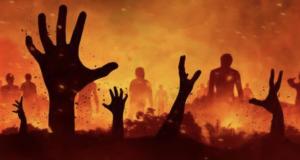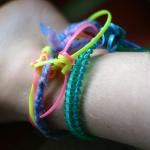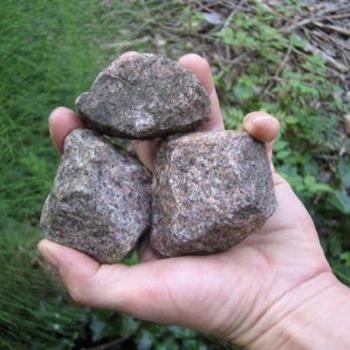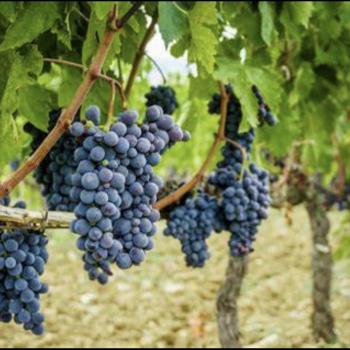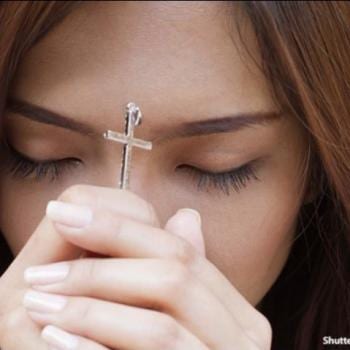Many times through the night, I nurse my 9 month old back to sleep. I didn’t know this with my first or my second, but by now, I can speak the language of the emotions he hasn’t yet learned to distill into even the word “Mama.” At first he’s just startled. Then, as he sits up and looks around his dark room, his voice changes: loneliness, followed by panic. So I stumble down the hallway and put him against my body, and his own body soaks up my calm.
Have you ever felt your whole body lose its tension, all at once? From your feet to the muscles of your face and throat?
We sit down on the rocking chair in the corner, and he latches on to me, and that whole storm of fear lifts like it was never there. Mind and body forget that just a moment ago, he was alone in the dark without his mother’s safe presence nearby.
We’re mammals, he and I. Nobody understands better than an infant mammal that separation from the safety of love is a death sentence. To a mammal, especially to a human, who is born more vulnerable than nearly any other species’ type of young, rejection is death. Loneliness is a threat to life. Love is safety and survival. We don’t outgrow this need. Even as adults, our brains interpret the rejection of an attachment figure as a physical threat, quite as dangerous as a blow to the body.
Anyway, I’ve been thinking a lot about Hell lately, as one does, when they’ve begun the grueling process of questioning what they never questioned. It’s not a theoretical problem, and I was born with a sense of urgency that doesn’t like to leave these questions alone. So I know the arguments for Hell, I know the arguments against it. I’ve read the books, I’ve practically memorized answers to the free will argument, the biblical argument, the Fatima objection, all of that stuff. I bring a lot of bravado to these arguments. It takes a lot of bravado to cover up that tremulous “What if.” It’s kind of a high stakes question, after all.
What if I wake up in my crib, in the dark, without my mother, and nobody comes for me?
Even without the intellectual conviction about the possibility of separation from God, my body is still vibrating with the same fear I hear in my son’s preverbal voice: will anybody come for me? How long will I have to wait?
It’s not enough to hear that of course God will come for me if I want him to. I am a mother; all babies are my babies. I can’t relax into the arms of a mother who comes for me, if she leaves another baby crying in the dark.
Are there any babies that wake up in the dark, and don’t cry for their mothers?
How different, in the end, are we from our infant selves?
We are older now, decades older. It’s just that a few decades isn’t enough time to transform or erase the survival needs we were born with. After all, we don’t outgrow our capacity for hunger and thirst. As free as we are, our will never develops to the point where we can choose not to long for food when we are hungry–and if we could, that wouldn’t be a mark of health and maturity. We don’t transcend our hunger. It would be absurd to expect us to. We also don’t transcend our primal need for love and safety.
But hell, I am reminded, isn’t being abandoned in the dark. Really, hell is the ultimate validation of our freedom to choose not to be in relationship with God. Could our choice really matter if it isn’t a choice at all? Maybe… maybe we lie there in the dark alone because… somehow that’s what we wanted.
That is silly, though. My son has no capacity to choose not to be in a relationship with me. That’s not a flaw. God cries, through Isaiah, “Can a mother forget the baby at her breast and have no compassion on the child she has borne? Though she may forget, I will not forget you!” The opposite is true as well: Can a baby forget his mother, the source of his safety and survival, the template of love which permanently writes itself into the electricity of his developing neural network? It just doesn’t work like that. Maybe it would if we were disembodied angels, but as it is, that’s just not the kind of creatures that we are.
In the end, is an adult really so different from a baby?
We like to think we are, but I think the differences between us are much shallower than they appear.
I think that we have free will the same way a baby has free will. I think I have the capacity to choose not to be in a relationship with God the same way my baby has a capacity to choose not to be in a relationship with me. Is his love for me any less powerful and real because he is a baby? Does his love for me somehow not count, since he has no real capacity to reject me? What kind of sense would it make for a baby to reject his own mother?
I don’t mean to sound sentimental here. I’m not saying, “Look at this adorable baby, can you imagine his chubby body plunging into an eternal lake of fire?” I’m saying, “Look at this little body. Are you really telling me that you, with your scars, your grief, your exhaustion, your jaded mind, your plans, your pretension, your small capacity to distill a fraction of your consciousness into the form of language… are you really so different from him in the end?” Don’t forget–you too, are a body.
We are not more human now than we were as infants. Decades of life do not change us into the kind of being that transcends dependence, and the love that we offer and ask for is not less holy because of our persistent need to be loved.
You are not something so utterly different from a baby that you no longer need your mother.
Anna O’Neil is putting everything else on hold and looking for relational, emotional, physical, and spiritual safety. She’s a little bit exhausted, but it’s good honest work. She lives in Rhode Island with her partner and three children, where she lies on the floor a lot and struggles with ambitious origami projects.

